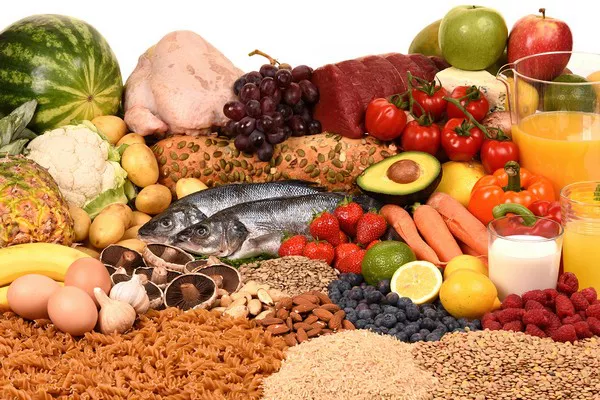Protein is a vital nutrient for athletes and fitness enthusiasts, known for its role in muscle repair, recovery, and growth. When it comes to cardio exercises, such as running, cycling, or swimming, there is ongoing debate about whether protein consumption is necessary or beneficial. In this article, we will explore the relationship between protein and cardio exercises and examine the potential benefits of consuming protein after cardio workouts.
Understanding Protein’s Role in Exercise Recovery
Protein plays a crucial role in exercise recovery, regardless of the type of exercise performed. During cardio exercises, your body utilizes energy from glycogen stores, and the muscles experience oxidative stress. Protein consumption after exercise helps initiate the repair process by providing the necessary amino acids for muscle protein synthesis.
Muscle protein synthesis is the process by which new muscle proteins are formed, leading to muscle repair and growth. Maximizing muscle protein synthesis is important for athletes and individuals aiming to optimize their exercise recovery and improve performance.
The Importance of Protein After Cardio
While cardio exercises primarily focus on improving cardiovascular fitness and burning calories, they can still impact muscle tissue. Prolonged endurance activities, such as long-distance running or cycling, can lead to muscle breakdown and fatigue. Consuming protein after cardio workouts can help mitigate these effects and support muscle recovery.
Protein consumption after cardio exercises provides the necessary amino acids to initiate muscle protein synthesis. This process helps repair damaged muscle fibers and enhances muscle adaptation to the demands of cardio training. Additionally, protein intake after cardio can help replenish glycogen stores and support overall recovery.
Benefits of Protein After Cardio
- Muscle Repair and Growth: Consuming protein after cardio exercises supports muscle repair and growth. The amino acids derived from protein are essential for rebuilding damaged muscle fibers and promoting adaptation to the training stimulus. This can lead to increased muscle strength and endurance over time.
- Enhanced Recovery: Cardio exercises can cause muscle fatigue and depletion of glycogen stores. Protein consumption after cardio helps replenish glycogen stores and supports overall recovery. By providing the necessary nutrients, protein can help reduce muscle soreness, improve muscle function, and accelerate recovery between cardio sessions.
- Preservation of Lean Muscle Mass: Cardio exercises, especially when performed for extended periods, can lead to muscle breakdown. Protein consumption after cardio helps preserve lean muscle mass by promoting muscle protein synthesis and reducing muscle protein breakdown. This is particularly important for individuals who engage in prolonged endurance activities and want to maintain their muscle mass and strength.
- Metabolic Benefits: Protein has a high thermic effect, meaning it requires more energy to digest, absorb, and process compared to carbohydrates or fats. This can have a positive impact on post-exercise metabolism. Consuming protein after cardio can help increase energy expenditure, promote fat oxidation, and enhance metabolic rate, potentially supporting weight management goals.
Timing Protein Consumption After Cardio
The timing of protein consumption after cardio exercises can influence its effectiveness. While the concept of a strict “anabolic window” has been challenged, consuming protein within the post-exercise period is generally recommended to optimize muscle recovery and adaptation.
The general guideline is to consume protein within 1-2 hours after cardio workouts. This time frame allows for the rapid delivery of amino acids to the muscles, initiating muscle protein synthesis and supporting recovery. However, it’s important to note that the immediate timing of protein consumption may be less critical for cardio exercises compared to resistance training.
Protein Sources for Post-Cardio Nutrition
Choosing high-quality protein sources is crucial for maximizing the benefits of protein consumption after cardio exercises. High-quality protein sources provide a complete amino acid profile, which is essential for muscle repair and growth. Here are some protein sources to consider:
- Lean Meats and Poultry: Chicken, turkey, lean beef, and other lean meats are excellent sources of high-quality protein. They provide essential amino acids and can be incorporated into post-cardio meals or snacks.
- Fish: Fish, such as salmon, tuna, and trout, are not only rich in protein but also contain omega-3 fatty acids, which have anti-inflammatory properties and can support recovery.
- Eggs: Eggs are a versatile protein source, providing all essential amino acids. They can be consumed as whole eggs or egg whites, depending on individual preferences and dietary needs.
- Dairy Products: Milk, yogurt, and cottage cheese are rich sources of protein, particularly whey protein. Whey protein is known for its rapid absorption rate, making it an excellent choice for post-cardio recovery.
- Plant-based Proteins: Plant-based protein sources, such as legumes (beans, lentils), tofu, tempeh, and quinoa, can be effective options for individuals following a vegetarian or vegan diet. Combining different plant-based proteins can help ensure a complete amino acid profile.
Personalization and Considerations
The optimal protein consumption after cardio exercises may vary depending on individual factors, such as goals, dietary preferences, and tolerances. Some individuals may have specific dietary restrictions or sensitivities that require adjustments in theirprotein timing and source. It’s important to personalize your protein intake based on your specific needs and preferences.
Additionally, the duration and intensity of your cardio workouts may impact your protein requirements. Longer and more intense cardio sessions may result in greater muscle breakdown and energy depletion, warranting a higher protein intake.
For individuals engaging in multiple cardio sessions throughout the day, spacing out protein intake evenly across these sessions can be beneficial. This approach ensures a consistent supply of amino acids to support muscle recovery and adaptation.
Conclusion
In conclusion, protein consumption after cardio exercises can be beneficial for muscle repair, recovery, and adaptation. While cardio workouts primarily focus on cardiovascular fitness and calorie burning, they can still impact muscle tissue. Consuming protein after cardio helps support muscle protein synthesis, replenish glycogen stores, and enhance overall recovery.
[inline_related_posts title=”You Might Be Interested In” title_align=”left” style=”list” number=”6″ align=”none” ids=”3098,3096,3094″ by=”categories” orderby=”rand” order=”DESC” hide_thumb=”no” thumb_right=”no” views=”no” date=”yes” grid_columns=”2″ post_type=”” tax=””]


































